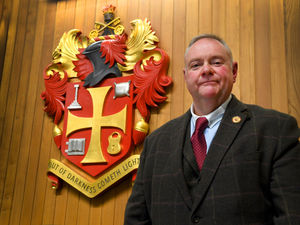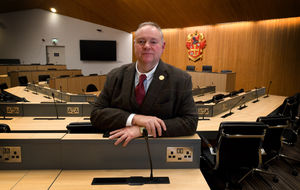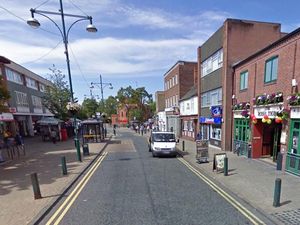From YTS to leader of Wolverhampton, history buff council leader talks plans for the future
Stephen Simkins is like a living, breathing encyclopaedia of Black Country history. He loves to go off at a tangent, reeling off tales about everything from the Bilston cholera epidemic of 1832, to the manufacture of the Tommy's helmets during the First World War.

But while the new leader of Wolverhampton Council is passionately proud of the region's past, he knows it is the challenges facing its future by which he will be judged. Tighter budgets, inflation, a city centre suffering at the hands of changing shopping habits, and the growing cost of adult social care, have made for a bulging in-tray since he officially took office in September.

Councillor Simkins, who has represented Bilston South ward for the past 21 years, took over the reins in circumstances he would never have wanted. His predecessor, Councillor Ian Brookfield, died from cancer in July aged just 57, and as his deputy, it fell to him to step into the breach.
"It is difficult for the obvious reasons," he says. "I had been acting leader while Ian was so ill, and that was difficult because Ian was so well liked.
"We had a good working relationship, he could be funny at times, but he could be serious at times as well.
"With Ian, it was always the community and citizens first, and I aim to continue that. Everything we do in the city will be about putting the citizens first."
When he left school at 16 in 1981, it would never have crossed his mind that one day he would lead the council. Bilston born-and-bred, he was always fascinated by local history.
"I went to Wilkinson School, and I was always interested in John Wilkinson," he says, referring to the Bradley-born iron magnate, who initiated the construction of Iron Bridge before handing the project over to Abraham Darby III.
But for many years, these interests went unfulfilled.
"I always thought I was clever at school, but I didn't manage to get any exams," he says.
This lack of formal qualifications meant that instead of furthering his interest in local history, he went to work in the workshop of the Charles Clark British Leyland garage in Chapel Ash, through the Youth Training Scheme (YTS).
"I was just a general dogsbody, I can't say it taught me a great deal," he says.
"Back then, a lot of companies just used YTS for cheap labour. Nobody was checking up on what we were doing."
He then tried an apprenticeship at British Road Services, the state-owned haulage company, but that didn't really work out, either.





